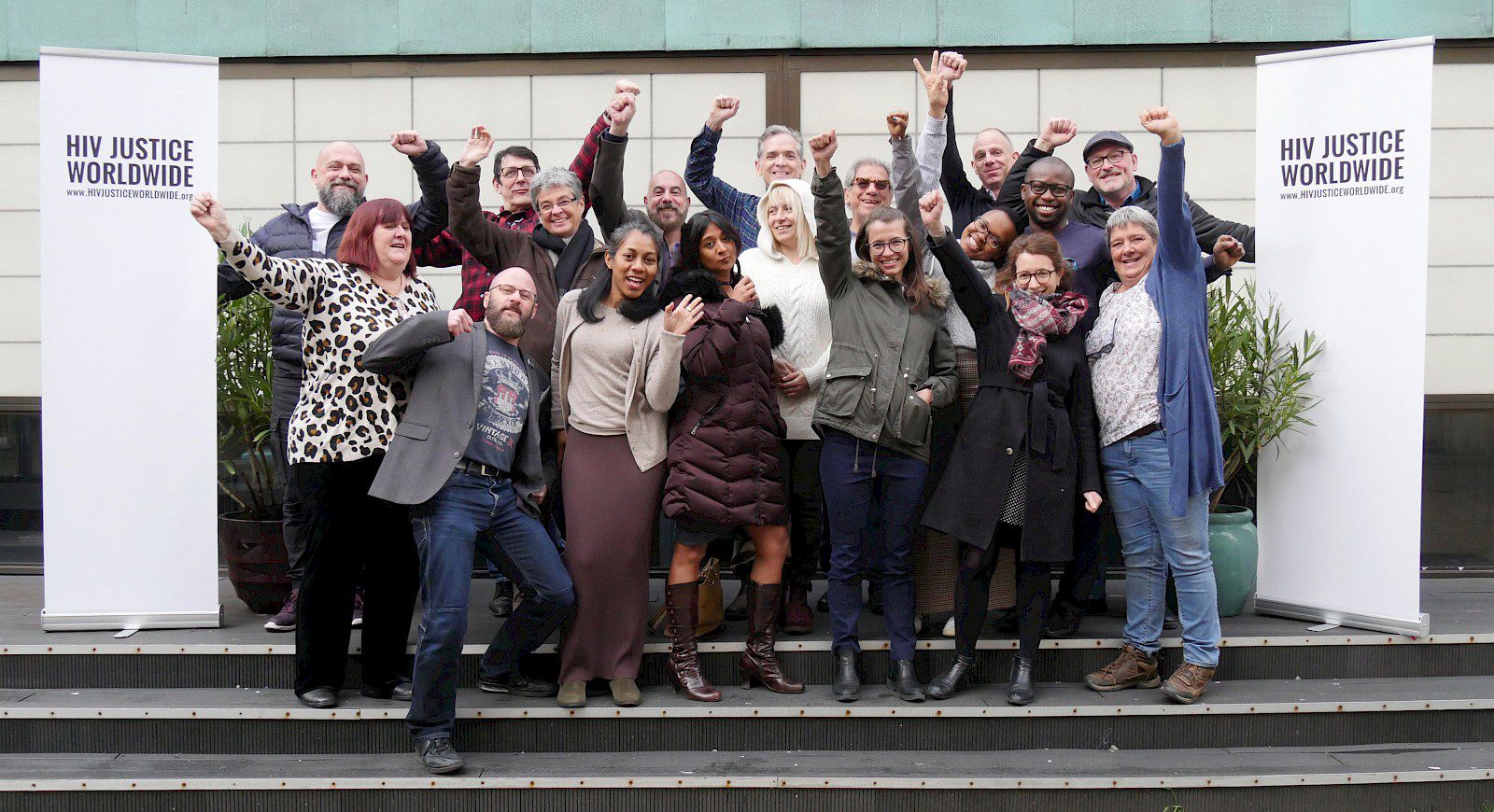HIV Justice Global Consortium: The Achievement of Expert Consensus on the Science of HIV in the Context of Criminal Law
“Scientists now have a clear understanding that the benefits of effective antiretroviral treatment are transformative. Now the challenge is to get jurists and legislators to understand the science.” Chris Beyrer, John Hopkins Bloomberg School of Public Health
The HIV Justice Global Consortium was formed in 2015 to combine the efforts of multiple networks addressing HIV criminalisation. The Consortium represents and serves people living with HIV who have direct experience of criminal prosecution, some of whom have been imprisoned.
The Consortium is comprised of six registered networks/organisations, with activities coordinated by the HIV Justice Network (HJN). The registration of HJN as its own legal entity, in 2017, was a major milestone for the Consortium and was made possible by core funding provided by the Robert Carr Fund.
However, the registration of HJN was just the start of a breakthrough for this Consortium. Less than a year later, in July 2018, 20 of the world’s leading HIV scientists published the Expert consensus statement on the science of HIV in the context of criminal law (the Expert Consensus Statement), in the peer-reviewed Journal of the International AIDS Society (JIAS).
Quick Facts about HIV Criminalisation
- HIV criminalisation describes the unjust use of criminal or similar laws to control and punish people living with HIV based solely on their HIV-positive status.
- People who are most socially, politically and economically marginalised are at greatest risk of investigation and prosecution.
- Seventy-five (75) countries have adopted laws that specifically allow for HIV criminalisation; 72 countries have reported prosecution for HIV non-disclosure, potential or perceived exposure, or unintentional transmission under HIV-specific laws (29), general criminal laws (37) or both (6).
The Expert Consensus Statement describes current evidence on HIV transmission (“risk”), treatment effectiveness (“harm”) and HIV forensics (“proof”) so that HIV-related science may be better understood in criminal law contexts. It is primarily intended to assist scientific experts considering individual criminal cases, but also encourages governments and those working in the criminal justice system to make all efforts to ensure that a correct and complete understanding of current scientific knowledge of HIV informs any criminal laws, or their application. To affirm its authority, the Expert Consensus Statement includes formal endorsement by the IAS, IAPAC and UNAIDS, as well as more than 70 additional senior HIV scientists from 44 countries.
The Consortium played a key convening and administrative role in the development of the Expert Consensus Statement supporting the effort by managing the work plan, undertaking the underlying literature review, supporting multiple authors’ face-to-face meetings and teleconferences, co-ordinating drafting and numerous rounds of authors’ revisions, co-ordinating review by external legal experts, liaising with JIAS, and seeking endorsers.

© HIV Justice Global Consortium
In the six months following the launch of the Expert Consensus Statement, lawyers and advocates have put it to good use. For example, the Expert Consensus Statement has been used: to advocate for the repeal of Zimbabwe’s HIV criminalisation law[1] (Section 79), resulting in the recent announcement by the Government of the law’s imminent repeal; for advocacy to health and justice arms of the Government of Belarus; to challenge an unjust HIV law in Kenya; to frame advocacy meetings with the Public Prosecutor’s Office, General Directorate of National Security and the Higher Institute of Magistracy in Morocco; and in dialogues with federal authorities to limit HIV criminalisation in Canada. In its 2019 work plan, the Consortium aims to further the reach of the Expert Consensus Statement, to maximise its utility as a tool for those defending people living with HIV in legal proceedings and to advocate against HIV criminalisation.
The moment of publication of the Expert Consensus Statement represented a major breakthrough in HIV criminalisation advocacy, made possible by RCF’s core funding to the Consortium. However, as shown in the intervening months, the Statement is just the start – with the HIV Justice Global Consortium well-placed to support people living with HIV and their allies, to put its weight and evidence into action for the protection of their fundamental human rights.
[1] Including at the 4th Symposium on HIV and the Law with a special focus on the Criminalisation of HIV Transmission, hosted by the Zimbabwean National AIDS Council and Zimbabwe Lawyers for Human Rights, with support from SALC, the AIDS and Rights Alliance for Southern Africa, HIV JUSTICE WORLDWIDE and UNWomen.